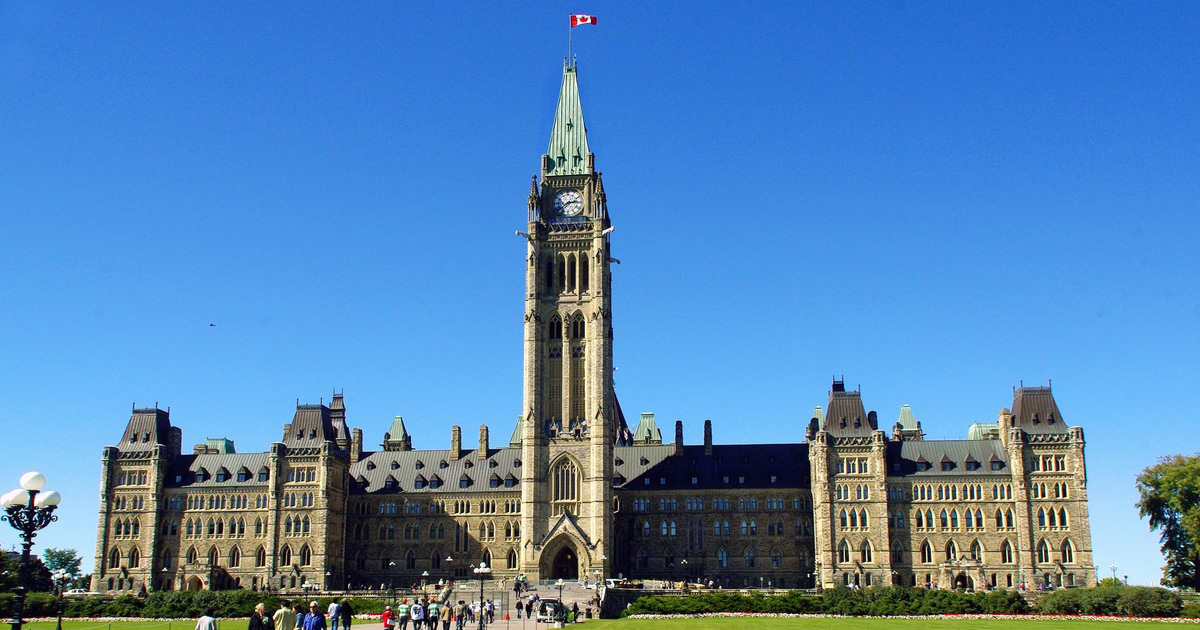What is increasingly obvious to me is that the frontline of the war for religious liberty in both Canada and the United States will be the extent to which Bible-believing Christians will be permitted to make public statements and to publicly practice their beliefs regarding homosexuality. Take for example the statements by Soulforce Western North Carolina Director Charles Merrill and his same-sex partner Kevin Boyle in response to President Bush's reference to homosexuals as "sinners" on July 30 during a press conference in the White House Rose Garden. In a press release by Religion News Service, Merrill and Boyle state, "The president can hold whatever religious beliefs he does. But somehow an insinuation that we as gay men and lesbians are sinners is 'spiritual violence' against us. Homosexuality is not a sin, homosexuality is not a sickness." In other words, "Believe what you will, Mr. President, but keep your beliefs private."
In Canada we have seen this trend developing for some time now. On June 20, 2001, the Saskatchewan Human Rights Commission ordered both the Saskatoon StarPhoenix newspaper and Hugh Owens of Regina to pay three homosexual activists $1,500 each for publishing an ad in the newspaper that, in the Commission's opinion, exposed homosexuals to hatred and ridicule. The ad consisted of four passages from the Bible (Romans 1:26-32, Leviticus 18:22, Leviticus 21:13, 1 Corinthians 6:9) followed by an equal sign and two stick men holding hands inside of a red circle with a line running through the stick men. In the opinion of the Commission, it was not the symbol that rendered the ad unacceptable; it was the inclusion of the Bible verses that condemned homosexual behaviour. The implications of this ruling are considerable in light of a private member's Bill that is expected to be voted on when the House of Commons reconvenes this fall that proposes to add "sexual orientation" to the current list of identifiable groups (i.e. colour, race, religion and ethnic origin) in the "hate propaganda" sections of the Criminal Code of Canada. The concern is that the wording of the Bill is vague enough to allow for a case-to-case interpretation of what would constitute a hate crime against someone of a particular sexual orientation. Potentially, we believe, this Bill could lead to the criminalization of the public reading of Scripture passages that speak out against homosexuality, sermons that decry sexual sin and any other printed literature that critiques homosexuality.
In late 2000, the Ontario Human Rights Commission ruled that Christian publisher Scott Brockie could not decline printing jobs for gay organizations that would promote homosexuality. He was told that "he was free to hold his religious beliefs and practice them in his home, and in his Christian community" but the Commission ruled that "it is reasonable to limit Brockie's freedom of religion in order to prevent the very real harm to members of the lesbian and gay community, and their organizations, by the denial of services because of their sexual orientation." Thankfully, the Ontario Division Court ruled in June 2002 that the Board of Inquiry decision was overly broad. The court ruled that Mr. Brockie had the right to refuse to print material that infringes his conscience or religion but he does not have the right to refuse to print material simply when the mandate of the organization infringes his conscience or religion. While this was a victory of sorts, the original ruling does point to a direction that human right commissions and courts are moving where personal belief is expected to remain private.
In May 2001, the Supreme Court of Canada ruled that the British Columbia College of Teachers could not refuse to approve Trinity Western University's teacher education program simply because TWU students must agree to refrain from extramarital sex, including homosexual behaviour while enrolled in the university. But in the ruling, the Court stated that "the freedom to hold beliefs is broader than the freedom to act on them." If the Court had found evidence that the graduates were acting out his/her beliefs and encouraging their students to refrain from premarital sex (homosexual or otherwise), the case would probably have been ruled rather differently. Simply put, the Court ruled in favour of TWU because there was no evidence that the private beliefs of the graduates were being shared in the public arena.
Last Thursday, Canada's National Post newspaper reported that Liberal Party leadership front-runner Paul Martin had suggested to reporters in Toronto that his role as a legislator may take precedence over his religious beliefs when it comes to allowing same-sex couples to marry. The Supreme Court of Canada, at the request of Prime Minister Jean Chrétien, is presently reviewing proposed legislation that would allow same-sex marriage, to determine whether it complies with the Charter of Rights and Freedoms. Martin told reporters, "I am a practicing Catholic and I have responsibilities as a legislator and those responsibilities must take in a wider perspective."
The issue of when duty contradicts faith is one that Christians have wrestled with from the first century. From the very beginning, Christians have been told that it is alright to believe what you will in the privacy of your own homes and congregations, just so long as in public you make your beliefs subservient to societal norms when conflicts occur. For the early church, the choice was whether they would allow civil authority (personified in Caesar) to have an equal claim to loyalty and obedience as Jesus Christ. The temptation then, as now, was to segment one's life into "religious" and "secular" realms. For the Christian, however, this is impossible. Faith, by its very nature, is communal, impacting all of one's life; private and public. The Christian worldview is that Jesus is Lord of all of life, not just the "religious" parts. For Christians, there is ultimately only one Lord, one God, one absolute authority. We can never give unconditional loyalty to any earthly institution. The early Christians were martyred not because they believed in Jesus but because they were seen as political rebels. They had to decide who they, ultimately, would obey; God or men. Increasingly, it seems to me, Christians in North America are facing a similar choice, especially in the war over homosexual right.





